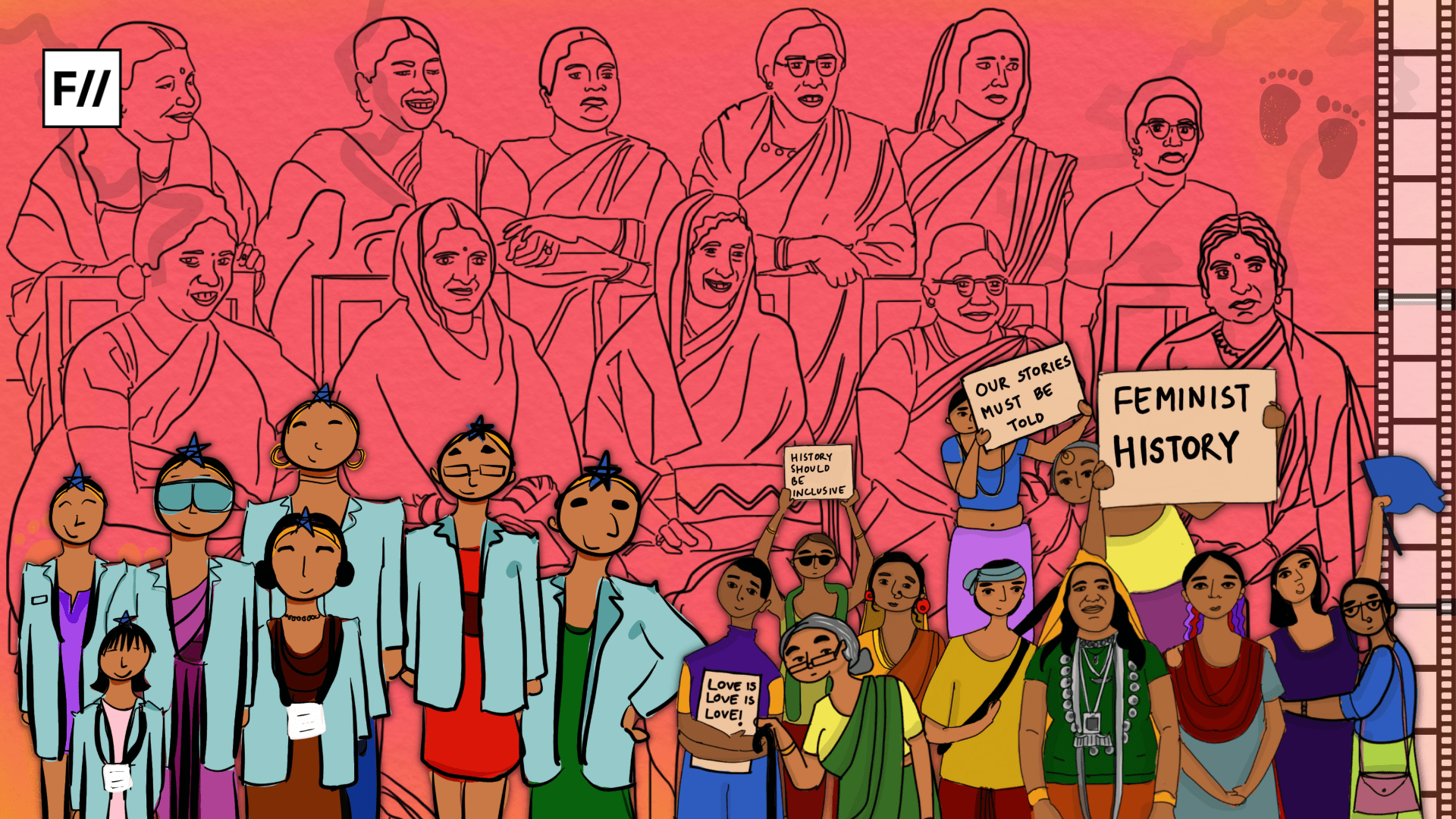Women’s History Month which is celebrated around the world from March 1st to the end of the month is a reminder of the big and little contributions and achievements they have made towards building the nations and societies. Science, Maths, Sports, Astronomy, Physics, politics, economics etc, women have made their mark in all the fields irrespective of the discriminations and setbacks. Women are leaders, they are torchbearers, readers, writers, and changemakers who have come a long way to carve a place for themselves in this patriarchal world.
Women of India have contributed to the making of history before and after independence. They have fought alongside the men in wars. They have battled against colonial rule and have contributed to the establishment of the Consitution. Yet, even today they are facing discrimination based on their gender and sexuality and their castes, ethnicities and religion. Young girls are still lagging in basic literacy, very less opportunities are offered to them, and the gender pay gap according to the International Labour Organisation remains still concerning.
“Indian women earned, on average, 48 per cent less compared to their male counterparts in 1993-94. Since then, the gap declined to 28 per cent in 2018-19 as in the labour force survey data of the National Sample Survey Office (NSSO). The pandemic reversed decades of progress as preliminary estimates from the Periodic Labour Force Survey (PLFS) 2020-21 show an increase in the gap by 7 per cent between 2018-19 and 2020-21. The data further suggests that faster decline in female wages during the pandemic contributed to this decline, compared to a faster growth in male wages, which requires urgent policy attention.”
FII takes this month to commemorate and highlight the contributions, and sacrifices that women have made to reach where we are today. Women’s history so long has been written through the hetero-patriarchal lens and often the perspective with which they have been studied, described, written and remembered is through the soft power of the male gaze. It is pertinent to reclaim and rebuild the historical narratives around women, lest we forget the great women who honed and shaped the world of today.
Women are still discriminated against and face gendered violence at the hands of patriarchal society. However, it is their resilience that keeps them moving and overcoming hassles thrown in by society.

It is important to note that caste, class, religion, ethnicity, location etc make it harder for women from these identities to get opportunities in education, politics, corporations etc as compared to women from upper caste dominant religions. Dalit, Adivasi and Muslim women face indiscriminate discrimination based on their diverse identities.
FII takes this month to commemorate and highlight the contributions, and sacrifices that women have made to reach where we are today. Women’s history so long has been written through the hetero-patriarchal lens and often the perspective with which they have been studied, described, written and remembered is through the soft power of the male gaze. It is pertinent to reclaim and rebuild the historical narratives around women, lest we forget the great women who honed and shaped the world of today.

In this context, we at Feminism In India invite submissions on Women’s History Month throughout March 2023. The deadline for submission of drafts is 25th March 2024.
Here are some pointers for you to consider while writing your articles on this topic:
- Profiles of women in history from various geographical regions whose histories have not been documented
- Profiles of women, who left an imprint on history but are only known through oral traditions
- Local and regional feminist and women’s movements
- Women’s resistance movements in the North East and Jammu and Kashmir
- Personal essays about how historical women influenced individual journeys
- Women’s representation in contemporary history from pop culture to literature and cinema
- Women historians and the feminist project of historiography
This list is not exhaustive and you may feel free to write on topics within the theme that we may have missed out on here. Please refer to our submission guidelines before you send us your entries. You may email your pitches or draft submissions to shahinda@feminisminindia.com.
We look forward to your drafts and hope you enjoy writing them!
Featured Illustration: Ritika Banerjee for Feminism In India
About the author(s)
Feminism In India is an award-winning digital intersectional feminist media organisation to learn, educate and develop a feminist sensibility and unravel the F-word among the youth in India.




